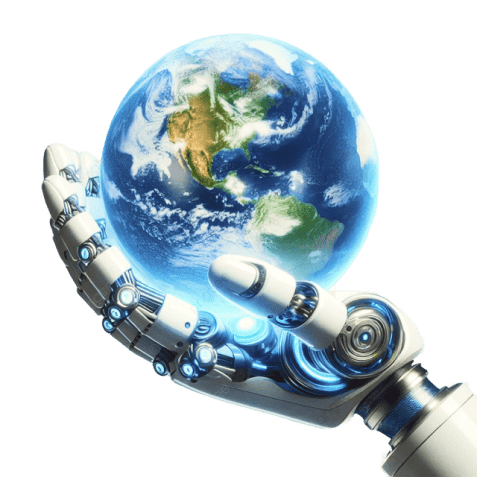
The Emergence of Artificial Intelligence in Africa: Transforming a Continent
Artificial Intelligence (AI) is not just the future—it’s the present. Across the globe, AI is transforming industries, enhancing efficiency, and solving complex problems. While much of the conversation around AI has historically been centered in regions like North America, Europe, and Asia, Africa is increasingly emerging as a key player in the AI revolution. The continent is uniquely positioned to leverage AI to address its developmental challenges, unlock new economic opportunities, and foster innovation that serves both local and global needs.
AI’s Potential to Solve Africa’s Unique Challenges
Africa faces a range of challenges, from healthcare gaps to agricultural inefficiencies, education deficits, and unemployment. The power of AI lies in its ability to tackle many of these issues through data-driven solutions and innovative technologies tailored to Africa’s specific needs.
1. Healthcare
Africa has long struggled with healthcare access, a shortage of medical professionals, and insufficient infrastructure. AI is starting to change this. AI-powered diagnostics, telemedicine platforms, and predictive analytics are making it possible to improve healthcare delivery, especially in rural areas.
For example, AI systems like IBM’s Watson have been used in diagnosing diseases such as cancer, providing healthcare practitioners with the tools to make more accurate decisions. Local startups like Nigeria’s 54gene are using AI to analyze genomic data, helping to advance Africa-specific medical research and drug discovery.
2. Agriculture
Agriculture is the backbone of many African economies, employing millions and contributing to food security. AI-powered technologies like precision farming, drone surveillance, and predictive analytics are helping farmers increase yields and manage resources more efficiently. AI can analyze climate data, soil conditions, and weather patterns to provide real-time recommendations for planting, irrigation, and harvesting.
Companies like Hello Tractor are revolutionizing farming in sub-Saharan Africa. Known as the “Uber for tractors,” the company uses AI and data analytics to help small-scale farmers gain access to agricultural equipment, improving productivity and reducing labor costs.
3. Education
AI is playing an increasingly important role in education across Africa, addressing both access and quality challenges. AI-based learning platforms, such as *M-Shule* in Kenya, are helping to bridge gaps in literacy and numeracy by offering personalized education programs. AI can tailor content to individual learning styles, enabling students to progress at their own pace, which is especially crucial in areas with teacher shortages.
Additionally, AI-driven solutions are helping to prepare Africa’s workforce for the future. By fostering digital literacy and technical skills, AI education platforms can empower young Africans to enter the global digital economy.
4. Financial Inclusion
Africa’s fintech sector is booming, and AI is at the heart of this transformation. In a continent where many people lack access to traditional banking services, AI is enabling financial inclusion by powering mobile banking apps, credit scoring models, and fraud detection systems. These innovations allow people to access credit, make payments, and manage savings without the need for a brick-and-mortar bank.
For example, Kenya’s *M-Pesa*, a mobile-based money transfer and financial service platform, has become a model for fintech success globally. AI-powered technologies are now enhancing M-Pesa’s capabilities, offering users personalized financial advice and more secure transactions.
The AI Startup Ecosystem in Africa
Africa is witnessing a surge in AI innovation, with startups leading the charge. From Nigeria to Kenya, Egypt to South Africa, entrepreneurs are developing AI solutions that address local needs and tap into global markets. This AI startup ecosystem is supported by an increasing number of incubators, accelerators, and investment funds focused on tech-driven development.


